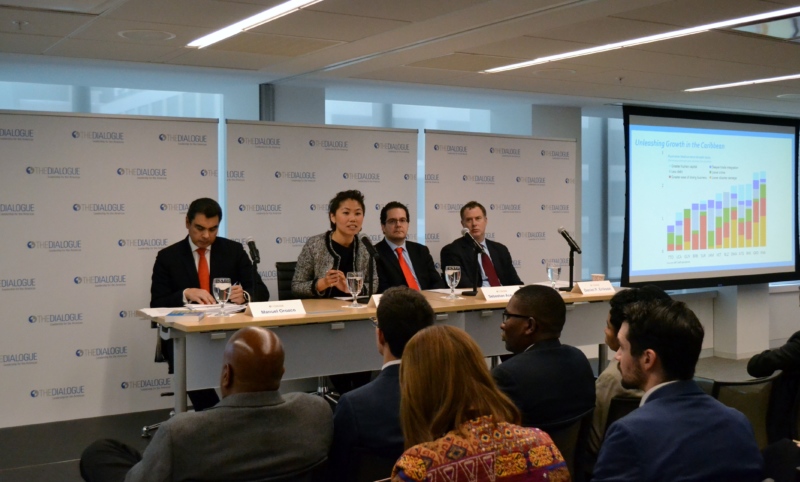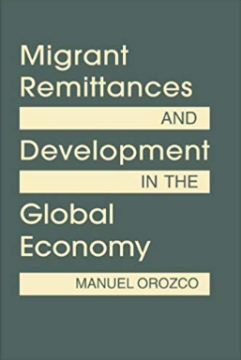Managing Natural Disasters
Like other developing regions, Latin America and the Caribbean is extremely vulnerable to natural disasters.
On January 30, the Inter-American Dialogue and the International Monetary Fund (IMF) hosted an event titled “Economic Development in the Caribbean” to discuss the findings of a recently published book, Unleashing Growth and Strengthening Resilience in the Caribbean (November 2017). This event was moderated by Manuel Orozco with panelists Joyce Wong and Sebastian Acevedo (International Monetary Fund) and Daniel P. Erikson (Blue Star Strategies). The panel discussed the roles that structural transformation, natural disasters, and fiscal policy have on unleashing future growth in the region.
Orozco opened by reflecting on how recent natural disasters have impacted the economies of the region. There is a need for island nations to devise solutions that can reduce their dependence on the tourism and informal sectors. Wong began by highlighting that GDP per capita, life expectancy, and labor force participation in the Caribbean are above the median for emerging markets. Despite that, no policy “buffers” exist to offset the economic shocks caused by natural disasters or the loss of trade agreements. Policymakers in the countries have been limited to reacting to these shocks rather than creating preventive policy measures. Acevedo went on to argue that Caribbean nations are the most vulnerable to natural disasters due to their geography and capacity. These negative shocks result in a 2.4 percent yearly decrease on a country’s GDP on average. Both Acevedo and Erikson noted that these natural disasters are damaging the country’s tourism industry in the short- and long-term.
“The Caribbean is one of the most vulnerable regions in the world when it comes to natural disasters. On average, 2.4% of GDP is destroyed every year in the region.” - Sebastian Acevedo @IMFNews #CaribbeanDev pic.twitter.com/OHw8YeoKdu
— The Inter-American Dialogue (@The_Dialogue) January 30, 2018
Wong went on to discuss the economic impacts of emigration and remittances on the island nations. She pointed out that about 20 percent of the Caribbean diaspora lives abroad. Within that population, 37 percent of immigrants have more than a high school diploma, differentiating them from Mexican and Central American migrants. Because of the demographic context of these island nations, this “brain drain” is having a substantial impact on sustaining future growth. Acevedo, on the other hand, stressed the necessity to “build resilience” to better protect the economy and country overall from natural disasters. He suggested preventive infrastructure investments, reformed fiscal frameworks, and climate change assessments as broad goals which policymakers could pursue. Erikson supported that sentiment by recommending a transition away from a traditional economy to one based on the knowledge and service sector. This would, in his view, lessen a country’s economic risk. In addition, greater regional integration of the Caribbean economy may allow coordinated responses to these challenges.
During the Q&A period, the panelists acknowledged other factors impacting government expenditures and future economic growth. Many pointed out examples such as energy costs, violent crime, or trade disparities. They agreed that policymakers must prioritize solutions based on their country’s specific context, such as high fiscal debt. However, if environmental vulnerabilities are not addressed, it will be difficult to achieve a stable foundation to pursue structural change and reform in the islands’ economies.
Like other developing regions, Latin America and the Caribbean is extremely vulnerable to natural disasters.
How do patterns of migration and remittances differ across regions? What kinds of frameworks support the contributions of remittances to local development?
In 2014, remittances to Latin America and the Caribbean grew 4%, reaching at least $62.3 billion.
 Irene Estefania Gonzalez / Inter-American Dialogue
Irene Estefania Gonzalez / Inter-American Dialogue

